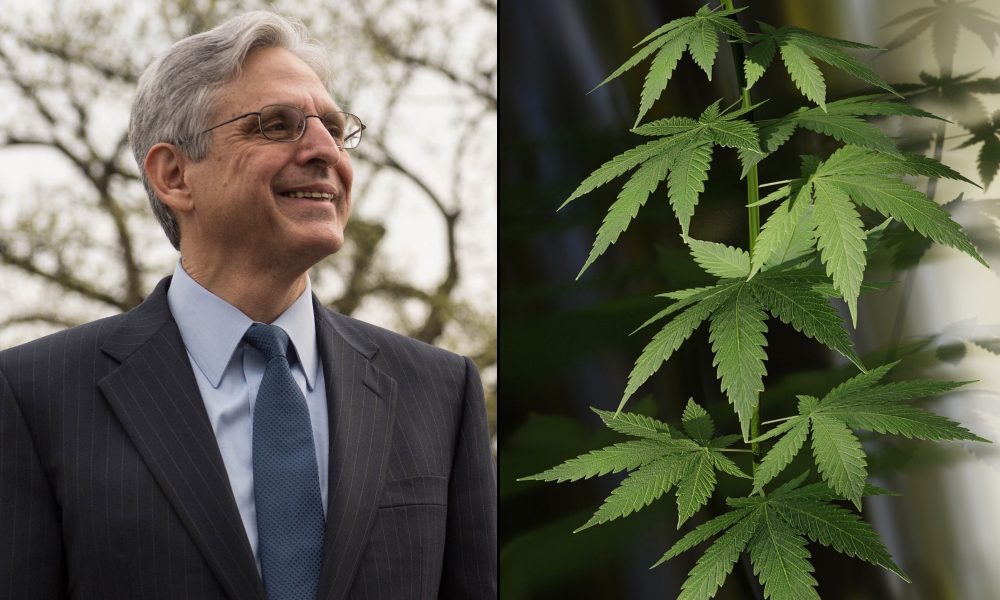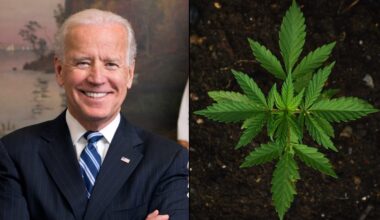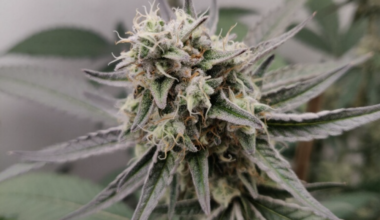The U.S. attorney general on Tuesday reiterated that he believes it is “not an efficient use” of federal resources to go after people for possessing marijuana. But he declined to directly answer a senator’s question on whether the Justice Department would be reinstating Obama-era enforcement guidance on not interfering with state cannabis programs that was rescinded during the Trump administration.
Attorney General Merrick Garland was pressed on the issue at a Senate Appropriations subcommittee hearing by Sen. Brian Schatz (D-HI), who asked the nation’s top prosecutor whether he intended to reissue guidance encouraging federal prosecutors to use discretion in cannabis cases in states that have legalized.
“I laid this out in my confirmation hearing, and my view hasn’t really changed since then,” Garland replied. “The Justice Department has almost never prosecuted use of marijuana, and it’s not going to be.”
Marijuana prosecutions are “not an efficient use of the resources given the opioid and methamphetamine epidemic that we have,” he said.
To be sure, Garland said in oral and written testimony during his confirmation proceedings that the gist of the so-called Cole memo will continue to be followed and that prosecuting individuals over cannabis is a wasteful allocation of Justice Department resources.
However, he did not directly answer the Schatz’s question about whether there were plans in the works to recodify that policy of discretionary enforcement, and the senator did not follow up to press the matter—saying that the attorney general’s initial reply was “good enough for me” before quickly pivoting to ask about other issues.
While the federal government has generally taken a hands-off approach to state-level cannabis legalization efforts under recent administrations, both Democratic and Republican, advocates have been pushing for the reinstatement of the Cole memo as they continue their push for comprehensive federal reform.
Garland’s reaffirmation of the Justice Department’s discretionary enforcement protocol for marijuana came on the same day that President Joe Biden made his first clemency action since taking office more than a year ago. The president granted clemency to dozens of people with non-violent federal drug convictions on their records.
Biden, in his statement on the action, said that “while today’s announcement marks important progress, my Administration will continue to review clemency petitions and deliver reforms that advance equity and justice, provide second chances, and enhance the wellbeing and safety of all Americans.”
Meanwhile, a bipartisan group of congressional lawmakers filed a bill this month that would direct the attorney general to create a commission charged with making recommendations on a regulatory system for marijuana that models what’s currently in place for alcohol.
Reps. Dave Joyce (R-OH), Hakeem Jeffries (D-NY) and Brian Mast (R-FL) are teaming up on what’s titled the Preparing Regulators Effectively for a Post-Prohibition Adult-Use Regulated Environment Act (PREPARE) Act—an incremental reform meant to inform comprehensive cannabis policy changes in the future.
While Garland has made clear that he doesn’t feel it’s appropriate to federally prosecute people who use marijuana, he hasn’t acted on calls from certain lawmakers to initiate the process to decriminalize marijuana.
Efforts in Congress to end federal cannabis prohibition are ongoing. For example, the U.S. House of Representatives again voted in favor of a bill to legalize marijuana and promote social equity in the industry at the beginning of the month.
On the Senate side, Majority Leader Chuck Schumer (D-NY) have been working to finalize their own legalization legislation, though the leader recently said that it would not be introduced this month as he previously signaled, but he made a “promise” to formally introduce it ahead of the August recess.
Separately, several Republican members of Congress introduced a bill last November to federally legalize and tax marijuana as an alternative to far-reaching Democratic-led reform proposals and scaled-down GOP cannabis descheduling legislation. The sponsor of that bill, Rep. Nancy Mace (R-SC), said she expects a committee hearing on her proposal.
Congressional Lawmakers Speak Up For Marijuana Worker Protections Amid Renewed Labor Union Push
Medical Disclaimer:
The information provided in these blog posts is intended for general informational and educational purposes only. It is not a substitute for professional medical advice, diagnosis, or treatment. Always seek the advice of your physician or other qualified healthcare provider with any questions you may have regarding a medical condition. The use of any information provided in these blog posts is solely at your own risk. The authors and the website do not recommend or endorse any specific products, treatments, or procedures mentioned. Reliance on any information in these blog posts is solely at your own discretion.






